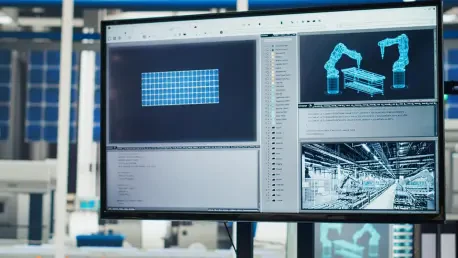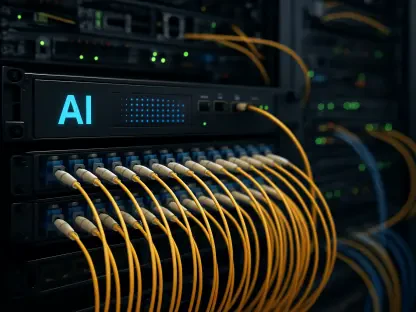In today’s fast-evolving industrial landscape, where connectivity and real-time decision-making are paramount, Industrial PCs (IPCs) have emerged as the linchpin for integrating the Internet of Things (IoT) and edge computing into diverse sectors, redefining efficiency and automation across the board. These specialized computing systems are far more than traditional hardware; they are engineered to withstand the harshest environments while powering transformative technologies that redefine efficiency and automation. From manufacturing plants to remote energy substations, IPCs enable seamless data processing and connectivity, tackling challenges that standard computers simply cannot handle. Their role is pivotal in addressing latency issues, ensuring operational reliability, and supporting the growing demand for decentralized data management. This article explores the profound impact of Industrial PCs on modern industry, delving into their durability, connectivity capabilities, and critical contributions to real-time analytics, all while highlighting the broader trends and supportive frameworks that amplify their effectiveness across multiple domains.
Building Resilience for Harsh Environments
Industrial PCs are uniquely designed to operate under extreme conditions that would render typical consumer-grade computers useless, making them indispensable in industrial settings. Built with rugged casings and often featuring fanless designs, these systems can endure intense temperatures, dust, humidity, and vibrations commonly encountered on factory floors or in remote locations. Their ability to function reliably 24/7 without faltering ensures that critical operations in industries like manufacturing and logistics face minimal downtime. This durability is not just a feature but a necessity, as it supports the continuous monitoring and control required in environments where failure is not an option. By providing a stable hardware foundation, IPCs lay the groundwork for implementing advanced technologies like IoT, allowing industries to push boundaries without worrying about equipment limitations.
Beyond physical toughness, Industrial PCs are engineered to meet the stringent demands of industrial applications through specialized components and configurations. Their wide operating temperature ranges and resistance to environmental stressors enable deployment in diverse scenarios, from scorching desert substations to freezing warehouse facilities. This adaptability ensures that data collection and processing can occur uninterrupted, even in the most challenging conditions. Moreover, the design of IPCs often prioritizes longevity and low maintenance, reducing the need for frequent replacements or repairs. Such resilience translates into cost savings and operational consistency, reinforcing their role as a cornerstone for modern industrial systems. As industries increasingly rely on interconnected devices, the robust nature of IPCs becomes a critical enabler for sustaining complex networks and ensuring seamless performance.
Facilitating Seamless IoT Integration
One of the standout capabilities of Industrial PCs lies in their role as local gateways within IoT ecosystems, connecting a myriad of field devices to centralized systems with remarkable efficiency. By collecting data from sensors, machinery, and other endpoints, IPCs preprocess information to eliminate unnecessary noise, transmitting only essential insights to cloud servers. This filtering process significantly reduces bandwidth consumption and accelerates response times, which is crucial for time-sensitive tasks such as equipment health monitoring in manufacturing or inventory tracking in logistics. The ability of IPCs to act as an intermediary ensures that data flows smoothly between on-site hardware and remote platforms, minimizing bottlenecks and enhancing overall system performance in dynamic industrial environments.
Additionally, the integration facilitated by Industrial PCs supports a more cohesive and responsive industrial network, bridging gaps that often hinder traditional setups. Their capacity to handle diverse communication protocols allows compatibility with a wide range of devices, fostering a unified IoT infrastructure. This connectivity is vital for applications requiring constant updates, such as predictive maintenance, where early detection of anomalies can prevent costly disruptions. By enabling real-time data sharing and coordination, IPCs empower industries to optimize processes and make informed decisions swiftly. The result is a more agile operation that can adapt to changing conditions without sacrificing accuracy or speed, highlighting the transformative potential of IoT when supported by robust computing solutions like Industrial PCs.
Enabling Real-Time Edge Computing Solutions
Edge computing represents a paradigm shift in data processing, and Industrial PCs are at the forefront of this movement by bringing computational power directly to the source of data generation. Equipped with high-performance processors and substantial memory, IPCs facilitate real-time analytics and decision-making without the delays associated with cloud communication. In manufacturing, for instance, they can instantly analyze sensor data to detect defects on a production line and trigger automated corrective actions, ensuring quality control with minimal latency. This immediacy is essential for applications where every moment counts, preventing potential losses and maintaining operational flow in high-stakes environments across various sectors.
The impact of edge computing powered by Industrial PCs extends to enhancing safety and efficiency in mission-critical scenarios beyond just manufacturing. In fields like energy management or autonomous vehicle operations, the ability to process data locally ensures rapid responses to changing conditions, such as adjusting power distribution during grid fluctuations or navigating obstacles in real time. By reducing reliance on distant servers, IPCs mitigate risks tied to connectivity issues, offering a reliable solution for industries operating in remote or unstable areas. This localized approach not only boosts performance but also conserves network resources, making it a sustainable choice for scaling operations. The role of Industrial PCs in edge computing thus redefines how industries handle data, prioritizing speed and autonomy in decision-making processes.
Adapting to Diverse Industrial Demands
Industrial PCs offer unmatched versatility through extensive connectivity options, making them central hubs for integrating a wide array of equipment and sensors in industrial settings. With multiple Ethernet, serial, and USB ports, they can interface with diverse machinery and systems, ensuring compatibility across heterogeneous environments. This flexibility is complemented by robust security features, including hardware-level encryption and secure boot mechanisms, which safeguard interconnected networks against escalating cyber threats. Such protective measures are vital as industries become more digitized, protecting sensitive data and operational integrity from potential breaches that could disrupt entire systems.
Scalability further enhances the appeal of Industrial PCs, allowing businesses to start with modest IoT implementations and expand as needs grow, without requiring extensive infrastructure changes. This adaptability supports incremental innovation, enabling companies to test new technologies on a smaller scale before full deployment. Whether in healthcare for managing patient monitoring systems or in logistics for optimizing supply chains, IPCs provide a customizable platform that evolves with industry requirements. Their design accommodates future upgrades in software and hardware, ensuring long-term relevance in rapidly advancing technological landscapes. By addressing both current and emerging needs, Industrial PCs prove to be a forward-thinking investment for industries aiming to stay competitive and resilient.
Embracing Decentralized Data Trends
The growing emphasis on edge computing signals a broader industry trend toward decentralized data processing, moving away from heavy dependence on centralized cloud systems, and Industrial PCs are pivotal in this transition. By handling data locally, they address critical challenges like latency and connectivity, particularly in remote or harsh environments where consistent internet access is not guaranteed. This shift enables industries such as energy and transportation to maintain operational continuity, whether managing off-grid power systems or ensuring real-time navigation for autonomous vehicles. The move toward decentralization reflects a strategic focus on efficiency and reliability, with IPCs providing the necessary hardware to support this evolution.
This trend also underscores a fundamental change in how industries approach automation and monitoring, leveraging the power of localized computing to enhance responsiveness. Industrial PCs enable complex algorithms to run on-site, supporting advanced applications like predictive analytics and anomaly detection without external dependencies. The result is a more robust industrial framework that can operate independently of cloud constraints, reducing risks associated with data transmission delays or outages. As more sectors adopt this decentralized model, the reliance on IPCs grows, cementing their status as essential tools for modern industrial innovation. Their ability to adapt to varying operational scales further ensures that this trend will continue to shape industry practices for years to come.
Sustaining Operations through Strategic Energy Support
A critical yet often overlooked aspect of deploying Industrial PCs is the need for a stable and reliable power supply to ensure uninterrupted functionality in demanding industrial contexts. Collaborations with leading energy providers offer access to advanced energy management solutions, such as smart grids and renewable energy options, which help maintain consistent operation of IPCs even during power fluctuations. These partnerships are essential for industries operating in remote locations or under stringent conditions, ensuring that critical data processing and connectivity are never compromised. Aligning with energy experts also facilitates compliance with regulatory standards, enhancing operational credibility.
Beyond mere power provision, such strategic alliances contribute to long-term sustainability goals by integrating eco-friendly practices into industrial operations. Energy-efficient solutions not only reduce operational costs but also minimize the environmental footprint of running high-powered computing systems like IPCs. This holistic approach supports industries in balancing technological advancement with corporate responsibility, optimizing resource use while maintaining high performance. By securing a dependable energy infrastructure, these partnerships enable Industrial PCs to deliver their full potential, driving efficiency and innovation. The synergy between cutting-edge hardware and robust energy frameworks ensures that industrial transformations remain both impactful and sustainable.









